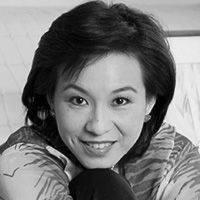Culture: Global capital

In a recent online mag called Trendwatching.com, the term “global culture capital†caught my attention. It read: “In 2013, global cultural capital will continue to be overturned just as dynamically as its financial equivalent. One result? Emerging markets will proudly export and even flaunt their national and cultural heritage in the next 12 months. Symbols, lifestyles and traditions that were previously downplayed if not denied, are being brought up to date, to become a source of pride for domestic consumers, and of interest to global consumers.â€
Culture can be so badly misunderstood, categorized or even explained. It is the intangible that scholars argue over, economists attempt to put some financial equivalent to, for people to define themselves with. Culture is who we are, what we are about, our values, style, cuisine, arts, expression, traditions etc. Culture is what differentiates us all in the global world. Culture is the DNA of our race. Our cultural preservation — how to continue it, how to make it sustainable? These are my constant thoughts as I read about the Bohol earthquake devastation of our old churches. Tangible culture down. What of our intangible culture?
And just as timely was ECHOstore’s non-profit ECHOsi Foundation’s visits to the Bagobo and B’laan tribes of Mount Apo. Through these special trips, our continuing focus is on diving deep into indigenous cultures, trying to preserve the heritage of a living culture while helping its people’s livelihood. Weaving fabric, woven baskets, weaving cultures into a tapestry that can be exported to the world… and not allowing the global market to exploit our people’s intellectual design properties.
How happy I am that through the work I do, either through the ECHOsi Foundation, the ECHOstore, EON’s advocacy of Branding the Philippines and the Yuchengco Museum, I can bring culture into mainstream life... to sustain our traditions, preserve our cultural heritage, innovate for sustainability and shout out to the world, “Pinoy culture is beautiful!â€
And so we recently trekked Mount Apo. The mist coating a drizzle accompanied us. This trip to southern Mindanao was specific to touch base with three indigenous cultural communities from the Bagobo Tagabawa “tribe†of Toril, Davao City, Tibolos of Sta. Cruz and Bagobos of Bansalan Davao del Sur. Plus the National Commission For Culture and the Arts’ (NCCA) School of Living Tradition for the B’laan tribe in its Lamlifew Cultural Village.
The ECHOsi Foundation was given a small grant by the Peace and Equity Foundation (PEF) focused on development to help poverty alleviation, with a tripartite agreement with the NCCA focused on cultural preservation. What we continue doing at the ECHOsi Foundation is preparing communities to up-value their livelihood products, check their operations’ sustainability and help them understand market realities such as costing, packaging, deliveries, etc.
The B’laan weavers are known for their exquisite embroidery and beading as well as t’nalak hand woven textiles; and the Bagobo groups are known for their fine abaca beaten textiles in the ine and kinatkat designs. From a planned one capacity-building workshop, we ended up giving four, when we realized that our indigenous groups didn’t even know how to price their textiles correctly. We try to strengthen their capacities and add value along each part of our supply chain for the Great Women Brand, one of ECHOstore’s sub-brands focused on women’s economic empowerment. Bagobo weaver Vivencia is one of our Great Women brand weavers. I marveled how, after just one year of being part of the development program, she is now an entrepreneur and manager, organizing her community weavers, already taking and fulfilling orders, becoming the bridge between production and market. Vivencia is our empowered role model!
Our local designers love to use our indigenous textiles but the challenges include sustaining supply, maintaining quality and capacity while small details of bank accounts for money transfers, correct costs, actual measurements of textiles could never be properly done. Our capacity-building workshop with all these groups was simple, too simple in fact that I wondered why no one bothered to even teach them this all this time! How to cost correctly; create swatches of textiles for ordering; and reviewing their production processes to make them more efficient. If our indigenous weavers need to prepare for the markets to continue livelihood, they need to be taught the proper skills, production and financial understanding. This, alongside keeping the traditional designs intact even as they try to innovate to bring money and food on the table.















